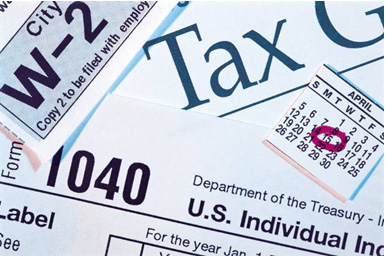

The image above is of several examples of tax forms. Taxes have always been a part of the lives of Americans. The British government imposed various taxes on American colonists, which later led to the American Revolution. Taxation became a constant debate between lawmakers and a constant concern for the citizens they represented. Congress passed its first tax on July 4, 1789, an 8.5 percent protective tax on thirty different items.
Question - How can a tax be protective? What was this tax protecting?
There have been two types of tariffs used in the United States, protective and revenue. Protective tariffs are aimed at protecting American companies as they compete against more established foreign companies.
For |
Against |
|
|
The Tariff of 1816 was an important tariff that was implemented with the purpose of helping the United States develop more factories. This tax provided the federal government with money that factory owners could borrow. Although the intent was to create factories for America, the tariff had some adverse effects. Complete the interactive below to see the impact of the tariff.
![]()
In your notes, summarize how the Tariff of 1816 affected the following groups.
The debate over tariffs spilled into the political debates. Two of the most outspoken leaders, Alexander Hamilton and Thomas Jefferson, led the debates over the protective tariffs. In the scene below, click on the protest signs to learn more about the opposing opinions.
![]()
Hamilton supported protective tariffs because he thought that the country would be stronger if it could make its own goods instead of buying them from other countries. He passed the protective tariffs to help American industry. Hamilton believed this would strengthen the economy. Meanwhile, Jefferson feared that the tariff favored the interests of the industrial North over the agricultural South.